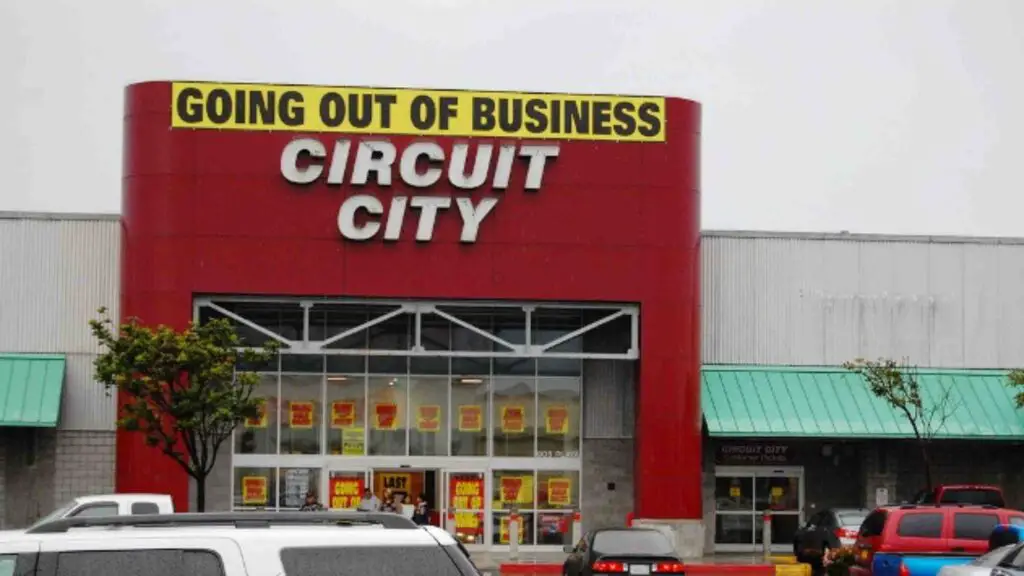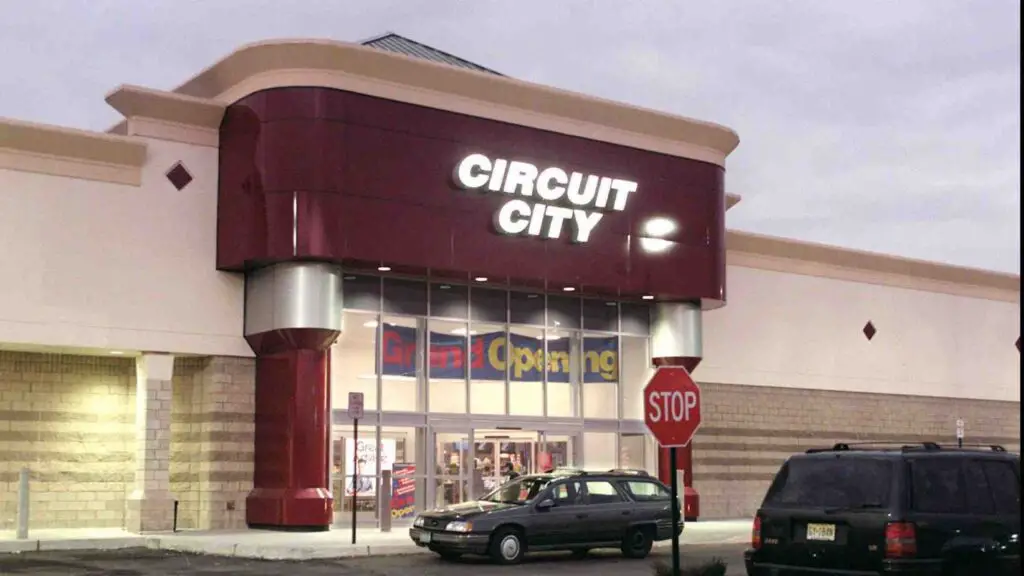Did Circuit city go out of business in 2023? Samuel S. Wurtzel established the American retail outlet Circuit City in 1949. The business, which had long been a leader in its sector, went bankrupt in 2009. Circuit City was troubled by a careless management team that made bad choices. Numerous Circuit City locations were out-of-date and in inappropriate areas. Additionally, stores employed salespeople to promote high-margin goods when customers were shifting to low-cost goods with low margins.
The failure of Circuit City provides an exemplary example of laziness, poor decision-making, and poor management. Let’s know in depth about it in this article.
DiscontinuedNews is impartial and independent, and every day, we create distinctive, world-class programs, news, and content that inform, educate and entertain millions of people worldwide.
Why did Circuit city go out of business?

Wurtzel saw the beginning of the American television boom, which led to the creation of Circuit City. It was formerly known as the Wards Company. He established the very first Wards store in Richmond, Virginia, seeing its promise for the future. As the business created the electronic superstore model in the 1970s, hundreds of locations emerged.
By 2000, over 60,000 individuals were employed by the business in North America’s 616 locations. Just 8 years later, it was forced to file for bankruptcy. Later, in March 2009, the final Circuit City location closed. Ronny Shmoel then established a new business in 2016. He started it after concluding a deal with Systemax to purchase the brand name and trademark rights.
What caused the downfall of Circuit City?
Circuit City’s achievement as the industry leader in the 1980s and 1990s caused it to lose focus on reality. This was a fatal error in the highly competitive and fast-paced electronics sector. Circuit City continued to follow a strategy it had established in the 1980s. It aimed to sell items customers didn’t want or require at the beginning of the new century.
The rise of rivals like Best Buy, Costco, and Kmart did not scare the administration. Samuel Wurtzel’s son and former CEO Alan Wurtzel would also remark, “We believed we were the smartest people alive.” “But it’s when you believe you know the solutions that a problem arises.”
The business also identified that customers no longer required a salesman to assist them with their purchases. It’s because electronic items have become more affordable and widely available. Circuit City stayed with a commission-based strategy despite this obvious trend. Salespeople from this company were forceful and outfitted in jackets. Also, they promoted high-margin products with extended service agreements. Compared to the newer Best Buy stores, many of their stores need to be updated and placed in less visible locations.
When it was at its peak, Circuit City had more than 1,500 locations across the USA and Canada. Due to weak inventory control, the company needed help to move its inventory around its extensive network of locations. This made it more difficult for them to buy fresh inventory and settle the millions of dollars they owed suppliers.
At one stage, the business had debts with Hewlett-Packard for $118 million, Samsung for $116 million, and Sony for $60 million. Circuit City’s administration made many extremely bad choices in the years leading up to its failure.
Once Alan McCollough became the company’s new CEO, he decided to stop selling devices to concentrate on consumer electronics. Circuit City missed out on the boom in real estate when appliance sales skyrocketed. As a result, it experienced a 15% revenue decrease. Circuit City’s primary customer base needed clarification on the change, which only made the company less attractive.
Is Circuit city still in business in 2023?
The business also suddenly terminated its commission-based salespeople in 2003. There were plans to swap the nearly 4,000 high-paid workers with half as many hourly workers. The decision to cut operational costs actually had the opposite effect. It’s because employee morale and output fell. Due to the surviving employees’ worry about being fired, they stayed away from becoming too productive, which hurt the business’ sales.
Although sales were still declining, Circuit City was loaded with cash. It was due to the spinoff of its CarMax car network and selling a private label line of credit.
Between 2003 and 2007, it spent about $1 billion repurchasing its stock. The stock price fell from $20 in 2003 to just $4.20 by the close of 2007, indicating that the company had failed to cover up its faltering sales. Circuit City could not survive the Great Recession, which arrived in less than a year. It happened as a result of the cash infusion.
So, out of bankruptcy, Systemax purchased the Circuit City brand, trademarks, and an online store. After 63 years, Systemax merged with TigerDirect in November 2012. It effectively ended the use of the Circuit City name.
After buying the company from Systemax in January 2016, retail expert Ronny Schmael brought “Circuit City Corporation” back to life. On August 22, 2018, Circuit City declared plans to open up a network of “stores within stores.” Later, it officially re-launched the company as an online retailer.
Circuit City announced the opening of retail stores across the country on its website in early 2019. The website is significant and provides a wide range of goods. The business is also working with H2 Motorsports to support a NASCAR race car.
Conclusion
The nationwide retail chain, which had been operating for 60 years, shut its doors in 2009. Ronny Shmoel and Albert Liniado purchased Systemax’s rights for the organization.
Two businesses intend to open retail locations in 2021 with touchscreen interfaces so customers can explore the goods. Tablets, headphones, drones, and other electronics will be available at the stores, along with the firm’s own line of reasonably priced computer accessories like USB cables.
In 2022, Shmoel aimed to establish 50 to 100 more locations. Shmoel believes that Circuit City will also offer its own brand on other retail websites and sell goods on CircuitCity.com.
